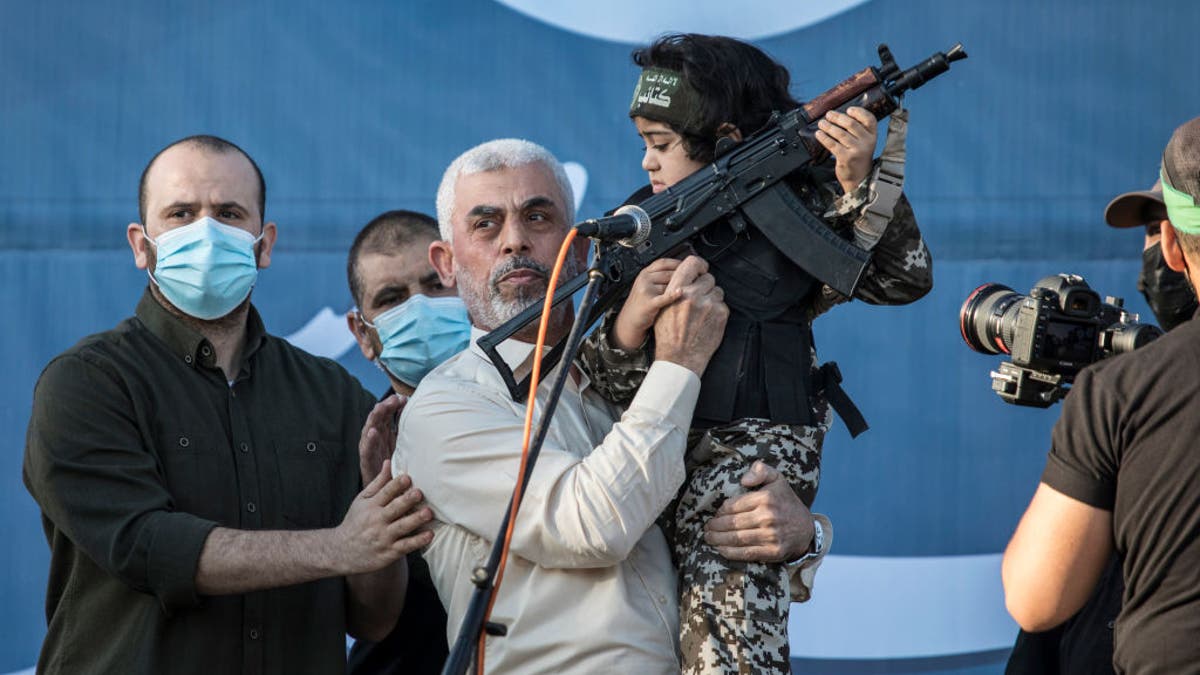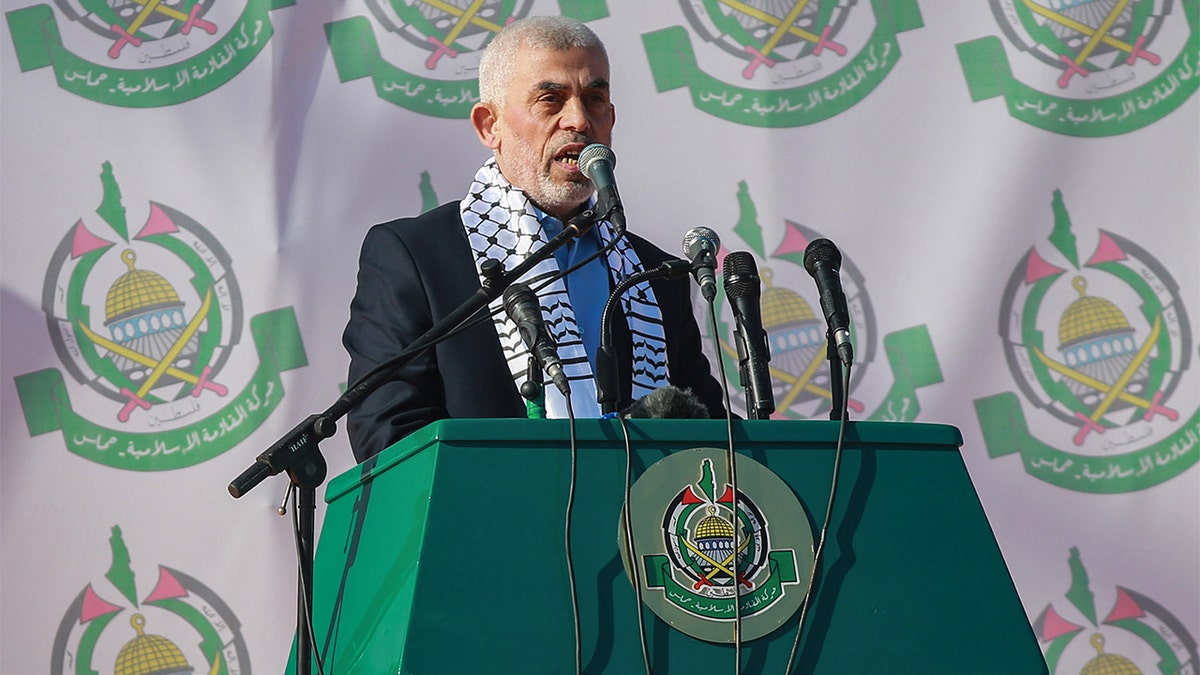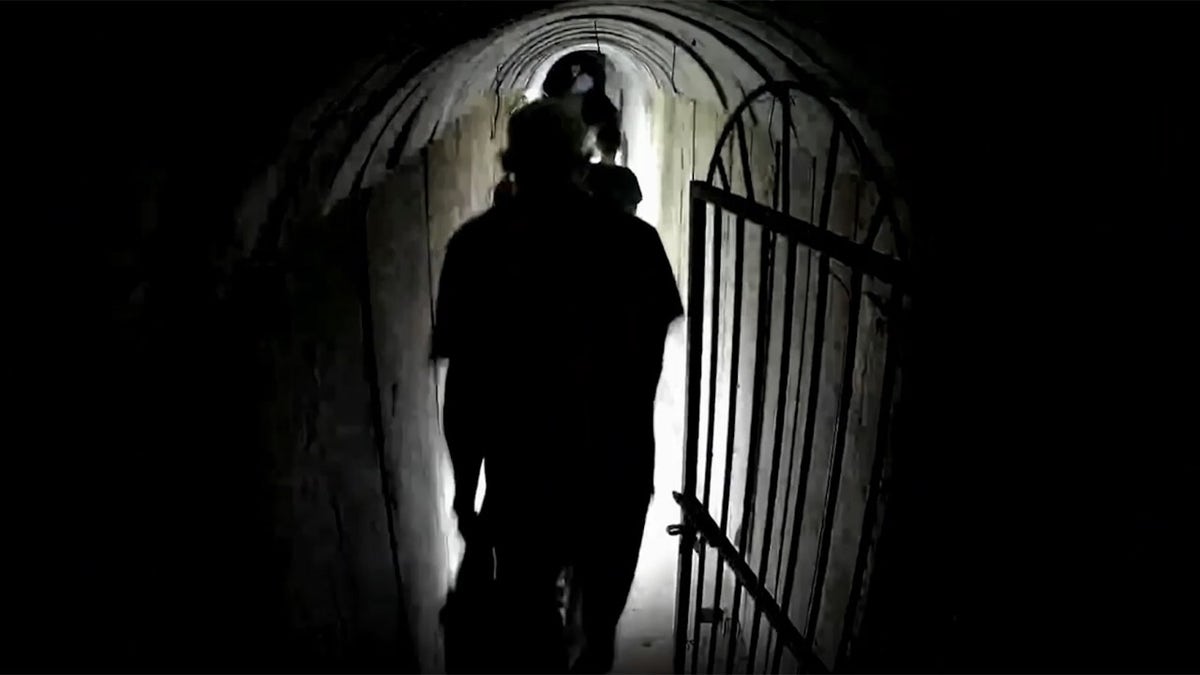The Israel Defense Forces (IDF) just took out their target No. 1: Hamas leader Yahya Sinwar, the mastermind behind the Oct. 7 attacks on Israel.
Sinwar rose to the top position after the killing of previous leader Ismail Haniyeh in the explosion of a guesthouse in Tehran on July 30.
Referred to by Israel as “The Butcher of Khan Younis” for his violent and cruel torture methods against his enemies, both Israeli and Palestinian, Sinwar, 61, is widely seen as being behind the massacre of Israeli civilians carried out by thousands of Hamas terrorists on Oct. 7.
The IDF has long targeted Sinwar, referring to him as a “dead man walking.”
“We will get to him, however long it takes… and this war could be long,” said IDF spokesman Lt. Col. Richard Hecht last year.
Sinwar was believed to be hiding in tunnels under Gaza.
Sinwar was born into the Khan Yunis refugee camp in Gaza in 1962 after his family had been displaced from Ashkelon during the 1948 Arab-Israeli War – an upbringing that heavily influenced his ideological commitment to resisting Israeli occupation.

Yahya Sinwar appears during a ceremony for fighters killed by Israeli airstrikes on May 24, 2021 in Gaza City, Gaza. (Laurent Van der Stockt/Getty Images)
Sinwar co-founded Majd, Hamas’s security apparatus, in the late 1980s, which focused on finding and killing Palestinians who were suspected of collaborating with Israel.
He was arrested and jailed in Israel in 1988 and charged with killing two Israeli soldiers and four Palestinians he suspected of collaborating with them.
Sinwar was sentenced to four life terms but was released in 2011 in a prisoner exchange deal for Israeli soldier Gilad Shalit.
While imprisoned, Sinwar spent two decades learning Hebrew and devouring texts to understand Israeli society. He translated tens of thousands of pages of autobiographies written by the former heads of Israel’s domestic security agency, Shin Bet, from Hebrew to Arabic.
Sinwar once told an Italian journalist, “Prison builds you,” allowing you the time to think about what you believe in “and the price you are willing to pay” for it.
He reportedly tried to escape prison several times, once digging a hole in the prison floor in the hopes of tunneling under the facility and escaping through the visitor center.
“They wanted prison to be a grave for us, a mill to grind our will, determination and bodies,” Sinwar once told supporters. “But, thank God, with our belief in our cause, we turned the prison into sanctuaries of worship and academies for study.”
Sinwar wrote a novel while in prison, “The Thorn and the Carnation,” a coming-of-age story that mirrored his own life. It followed a young Gazan boy who emerged from hiding after the 1967 Arab-Israeli war to a life of Israeli occupation that made “chests of youth to boil like a cauldron.” The boy’s family and friends attacked the occupiers and those who collaborated with them.

Sinwar rose to the top position of Hamas after the killing of previous leader Ismail Haniyeh in the explosion of a guesthouse in Tehran on July 30. (Mohammed Talatene/picture alliance via Getty Images)

Sinwar escaping through an underground Hamas tunnel with his family in the days after the Oct. 7 attack on Israel. (IDF)
After he was freed by the Israelis in 2011, he married and had children.
In 2017, Sinwar was chosen as the political leader of Hamas in Gaza, shifting the region to a more militant stance and strengthening alliances with Iran and Hezbollah.
“Sinwar evaded multiple elimination attempts by Israeli security forces over the years, before Oct 7 and several attempts were either canceled or unsuccessful after Oct 7,” retired IDF Lt. Col. Jonathan Conricus said.
“Sinwar used Israeli hostages as his human shield and that bought him additional time but eventually he had to be lucky every single time and Israel only needed to be lucky once and according to the preliminary information it appears that Israel was indeed lucky and did indeed take him out,” Conricus, who is now a senior fellow at the Foundation for Defense of Democracies, added.
The IDF said in a statement there were “no signs of the presence of hostages” in the area surrounding him.
IDF INVESTIGATING WHETHER HAMAS CHIEF YAHYA SINWAR WAS KILLED IN GAZA OPERATIONS
But as Israeli Policy Forum head David Halperin noted, Hamas could retaliate by harming the hostages.
“The risk to hostages in these moments is enormous. An urgent initiative for their return is essential,” he wrote on X, formerly Twitter.
The Hostages Family Forum said in a statement it “commends the security forces for eliminating Sinwar, who masterminded the greatest massacre our country has ever faced, responsible for the murder of thousands and the abduction of hundreds.”
“However, we express deep concern for the fate of the 101 men, women, elderly and children still held captive by Hamas in Gaza. We call on the Israeli government, world leaders, and mediating countries to leverage the military achievement into a diplomatic one by pursuing an immediate agreement for the release of all 101 hostages: the living for rehabilitation and the murdered for proper burial.”
CLICK HERE TO GET THE FOX NEWS APP
The death of Sinwar could represent a turn in the tides of war – and could prompt Hamas to agree to some of Israel’s demands, or could satisfy Prime Minister Benjamin Netanyahu’s desire to “eliminate” Hamas enough that he softens his own negotiating stance.